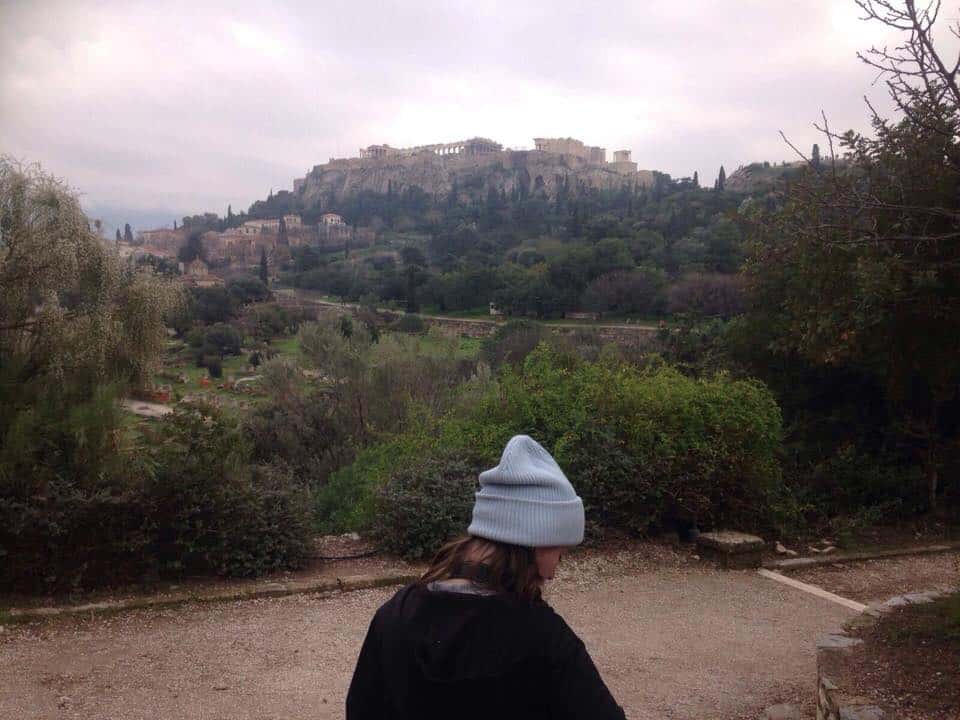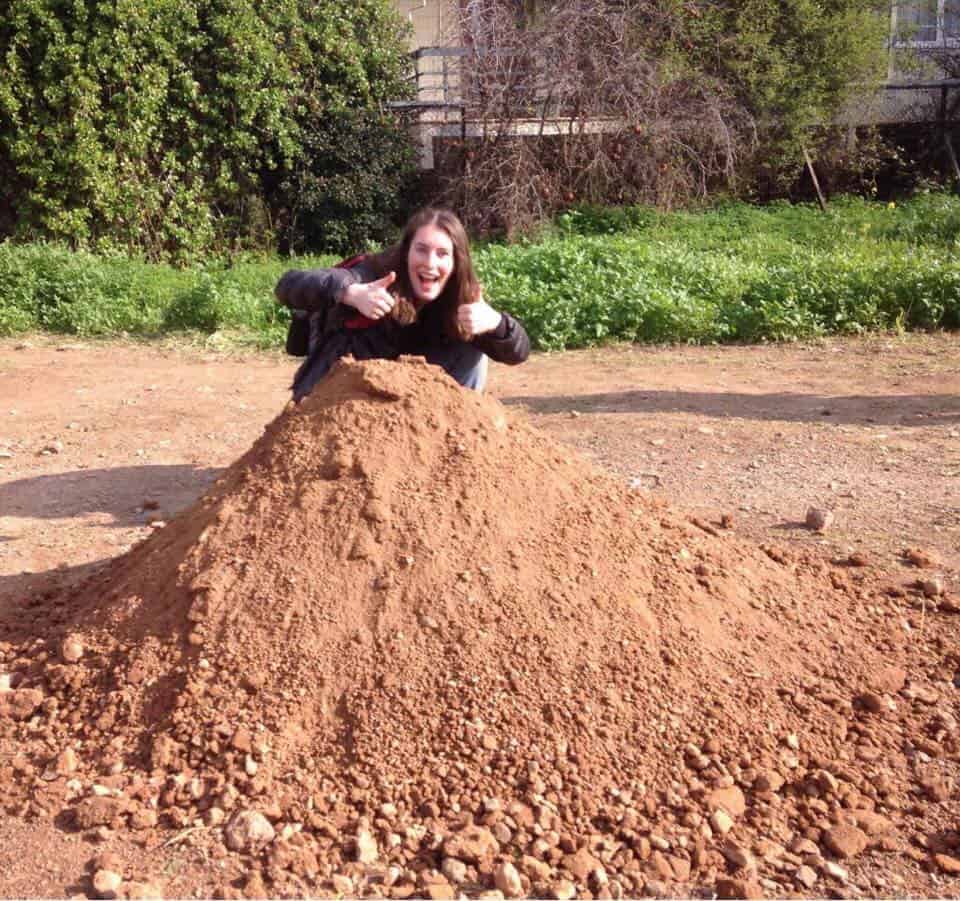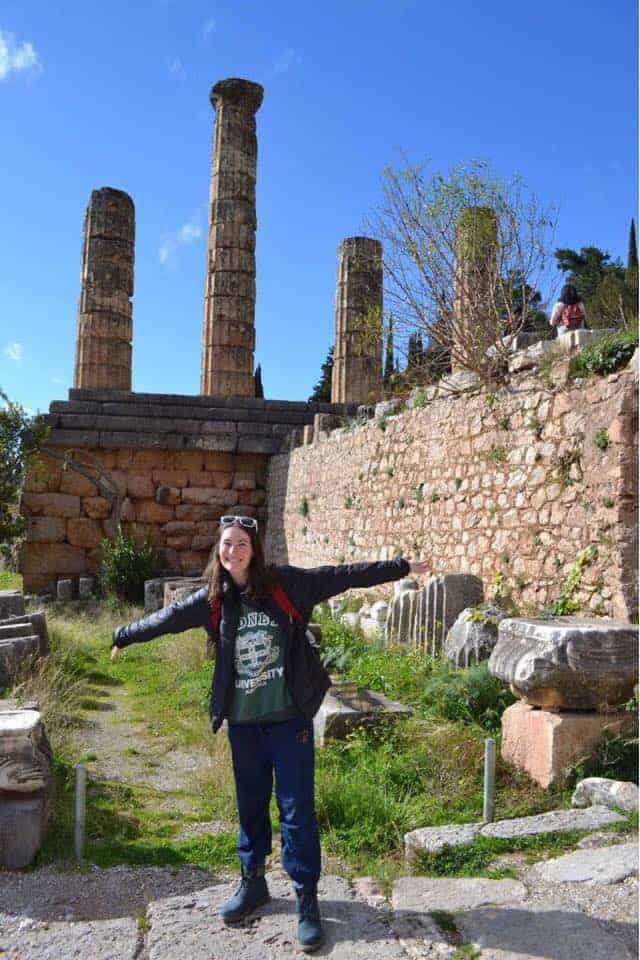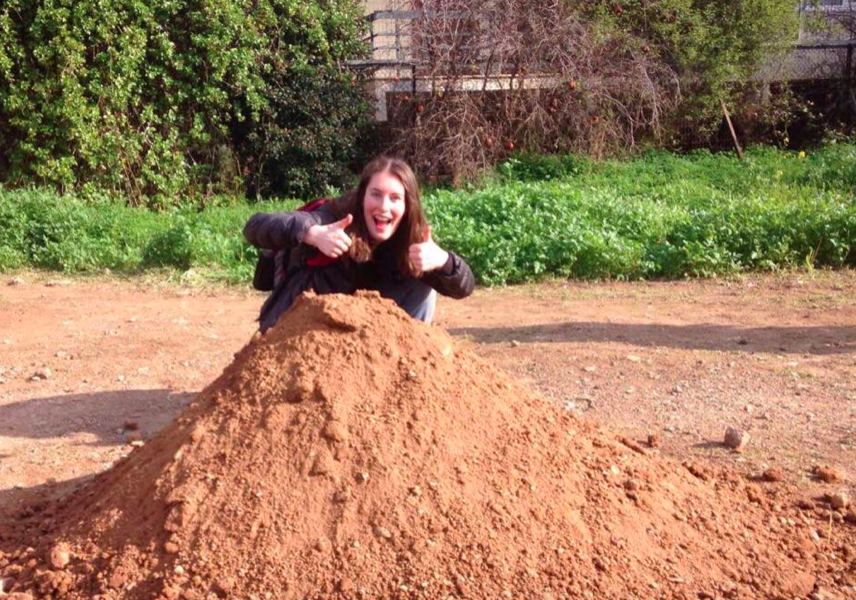
"In January 2018, I was selected to go, along with a few other students on an archaeological dig in Greece as part of my archaeology degree, which I’m completing at the University of Sydney. This has by far become one of the most exciting and fascinating experiences of my life so far.
We spent three weeks in Greece, one week attending lectures, and the other two digging. We excavated a site in the modern suburb of Voula, called Halai Aixonides, which was a significant site in the Classical and Roman periods of Greece, and to our surprise, we managed to find some artefacts dating back to those times. When we were not excavating, we were attending lectures relevant to the course material as well as the history of ancient Greece, and exploring Athens and other areas of Greece.
To excavate an area, first you need an idea of what the site was used for, which may indicate the sort of artefacts you will find. Once you have an understanding of the site, the process of the actual excavation is quite difficult. Many sheets (context sheets, list of bags of artefacts found, and more) must be recorded during the duration of the dig meticulously. Obviously tools are essential too. We used a large variety, including hand axes, towels, brooms and brushes.

We were split up into different trenches, and my trench managed to find a loom weight, as well as a potential hearth site. I managed to find some burnished ware pottery, which is a great find. The experience was not like anything I had ever done before. The trench next to us found a coin from the Roman period, giving the location a relative time period of occupation. The most common find was definitely ancient pottery though, with every person on the dig finding at least one piece.
I do have to admit, excavating was difficult work; we were all sore and stiff by the end of it, and had many blisters on our hands from the manual labour. It was rewarding however, the many finds we collected were worth the pain we endured.

It was great to know the significance of the site too, as it was a location so close to Athens, it served as an important role to the ancient city. It was a brilliant experience and I would love to partake in another dig!
I loved being immersed in the history of Greece, we stayed in a location about 10 minutes away from the Acropolis and it was so amazing to walk down the streets and look up to see one of the most fascinating sites in all of ancient history. You don’t really get that kind of connection with history anywhere else in the world. It was also very refreshing to be in Greece for the first time, experiencing an entirely new culture and attempting to learn the language. I felt so immersed in the history and archaeology of the country and I loved it.
Our course gave us the weekend off, so every Saturday and Sunday we tried to see as many sites as we could. We visited the Parthenon (it felt incredible to finally see the site we’ve been studying for years), as well as Delphi and Eleusis, two ancient sites that served incredibly important purposes in the past. The Parthenon was incredibly different from what I had previously believed it to be. The Acropolis is a huge area, with multiple buildings on top and the Parthenon is largest. It was a fascinating building, with so much history behind it, so naturally I was overjoyed to finally see it in person.
My friends and I are already planning a second trip back! I had the best adventure of my life, and I can’t wait to do it all over again. Visiting Greece was such a great experience and I loved every second of it."
Lis Miller, Archaeology Student, Sydney University


